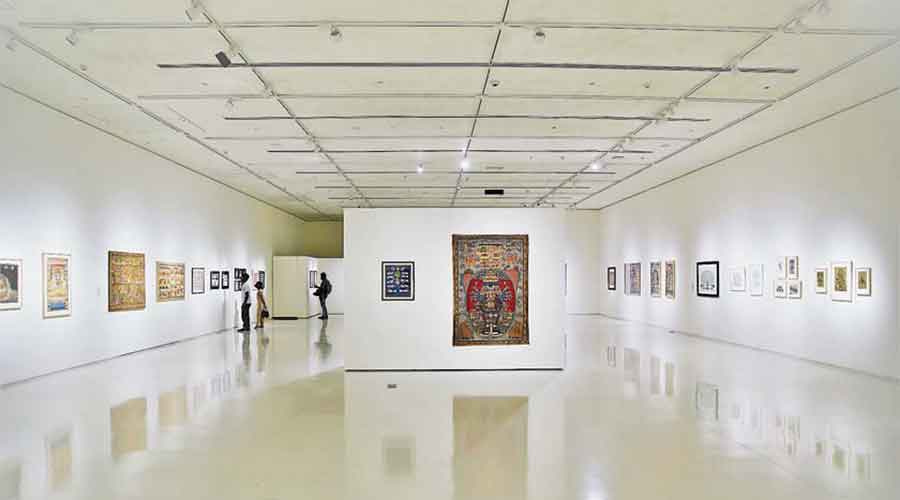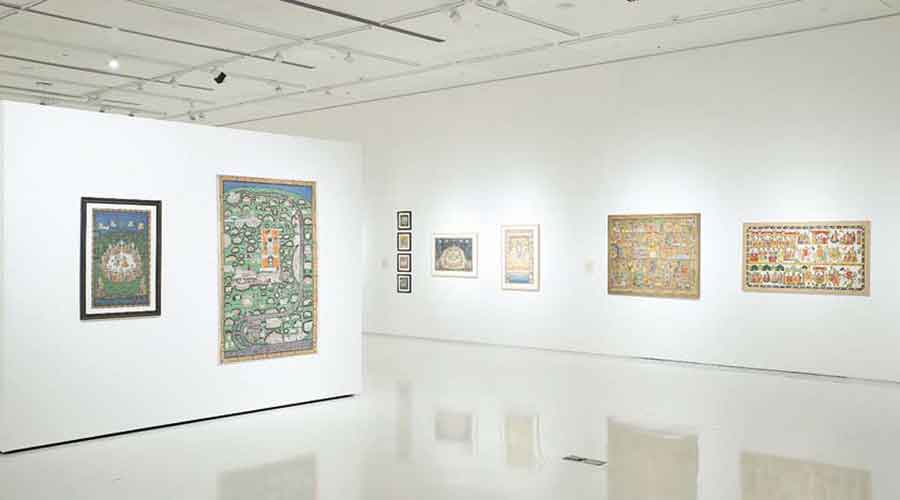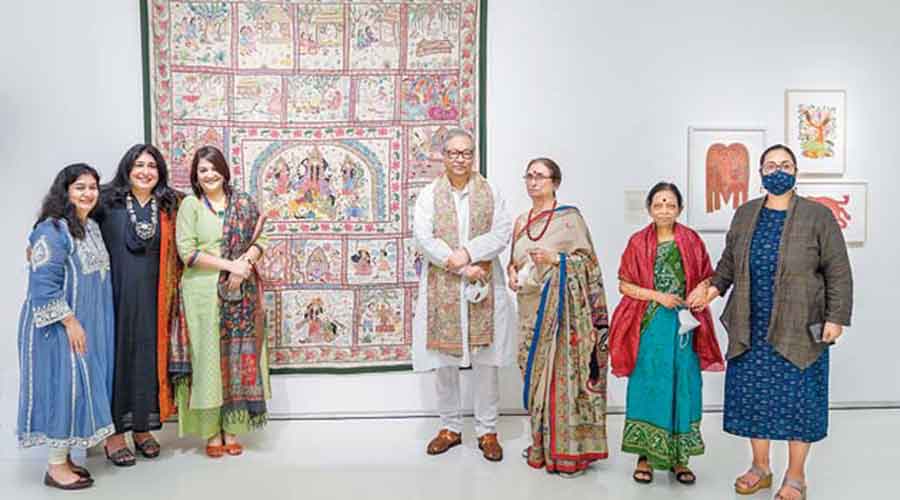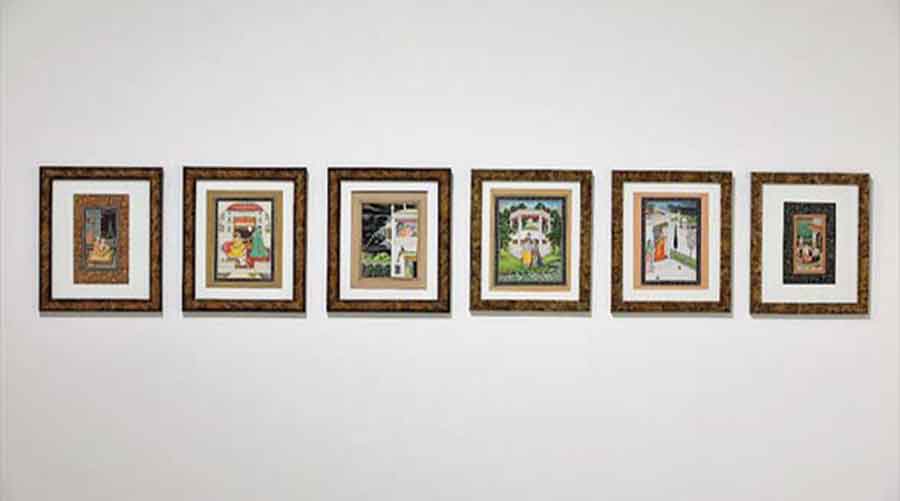Karu, an exhibition of contemporary miniature, tribal and folk art of India, featuring the representative work of six masters – Bhuri Bai, Nand Kishor Sharma, Ram Soni, Pavan Mohan Prajapati, Akshay Kumar Bariki and Kalyanmal Sahu, along with skilled artisans working at SHE Kantha to show innovations in the rich traditions of visual art, recently opened doors at Emami Art.

The word ‘karu’ originated from the Bengali word karukala, which means craft or functional art, as opposed to charu kala or fine art. It refers to the rich indigenous visual traditions for which India has been known for centuries. Each of the artworks featured side by side in the exhibition shows the power of traditional imagery, delicacy of mediums, forms and expressions.
“The intricacy and finesse of Bhuri Bai’s paintings bring to the fore not just the local fables of the Bhil community depicted through them but also a wave of emotions. The large Pata paintings based on Vaishnava and Jagannath themes by Akshaya Bariki, born to a family of traditional painters in Ragurajpur, Odisha; and the tales of Krishna depicted in the Pichwai paintings by Kalyan Mal Sahu, a largely self-taught artist, enchant our eyes. One can find similar delicacy in showing the devotional contents in Nand Kishor Sharma’s Phad painting and Ram Soni’s fine paper cutting of Sanjhi Art, two unique traditional art forms of Rajasthan and North India. The refined treatments in Mohan Prajapati’s Mughal and Rajasthani styles of miniature paintings are in contrast with the playful, unsophisticated quilt embroideries done by the skilled women artisans of Bengal. In all these diverse artworks on display, the creative energy of India - the distant sound of the earthen drum - reverberates in widely different forms,” said a dossier on the exhibition.

“I am delighted to present Karu, an exhibition of contemporary tribal and folk art and miniature paintings of India. Done by the widely recognised artists, the large body of diverse indigenous art from different parts of the country shows the ingenuity of the pre-modern art forms and imaginations, giving us a sense of reassurance in our troubled present. Working within the framework of tradition, the artists are faithful to the heritage but do not imitate the past blindly. In the exhibition, what attracts us are their inventiveness and self-developed ingenuity, which, unlike modern art, are defused and do not dissociate them from the shared traditions. Karu is an astonishment. It is a space for enjoyment, enchantment, and ethical and emotional investment in promoting India’s unique indigenous visual arts,” said Richa Agarwal, CEO, Emami Art.

From left: Richa Agarwal, CEO, Emami Art; Malika Varma of SHE Kantha, and Rupali Basu on opening day; second from right: Kantha revivalist Shamlu Dudeja, who is also the founder of Self Help Enterprise (SHE)
The exhibition is on view till October 30 at Emami Art (777 Anandapur, EM Bypass).
Pictures: Courtesy of Emami Art
